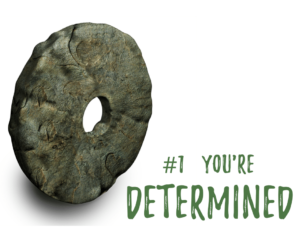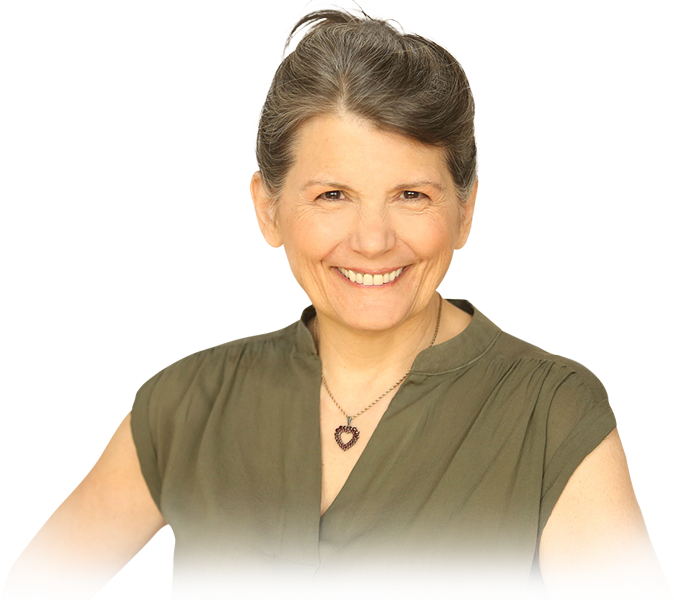Holistic practitioners are a hardy lot, used to figuring things out for themselves, going it alone, getting by on less.
Those are virtues… until they become ways of shooting yourself in the foot! In this post, we’ll look at how that happens with 5 of the most common obstacles practitioners create for themselves.
 Obstacle #1. You’re determined to figure it out on your own.
Obstacle #1. You’re determined to figure it out on your own.
I sooo understand this. I spent more than 35 years feeling the same way, but the problem is that it ends up with a lot of reinventing the wheel.
Not only does it waste effort, it wastes time.
For example, it took me 3 years to figure out what I teach practitioners in a year. But then it also took me years to embed it and use it naturally, because I didn’t have anyone to help me with making any of it—from attracting and enrolling clients to my business in general—feel like myself.
For sure, there’s a time to figure things out on your own.
When you’re trying to get your practice to a place where it sustains you so that you have the ability to help more of the people you’re uniquely qualified to serve—that’s not one of them.
In the last 2 weeks, I’ve had 16 new referrals and 6 of those are from people I don’t even know! The momentum has built to a point where, sometimes, I just sit back and say, “Wow!” It just goes to show what’s possible when you have the tools, a support network and guidance from Allison—who knows what you need to move forward.
~Nancy Harden, Feldenkrais Practitioner, PT
 Obstacle #2. You’re used to being a loner.
Obstacle #2. You’re used to being a loner.
A lot of practitioners tell me that they feel like outliers. They don’t have a real community and they don’t have colleagues they can speak with frankly. They feel like they’re in competition with every other practitioner of their own modality and any other modality where touch is the primary focus.
They’re worried that if they show up in a group focused on practice-building, people will think less of them. In fact, I’ve even heard that “if I join your group, it will be a clear indication to everyone that I’m a loser. Including me.”
In fact, what happens when you’re in a group of people who are all working on the same thing is that you have access to energy, friendship, community, accountability and more insight than you can get on your own.
Q&A calls give you answers to questions you didn’t know you had… for example, this is what Maggie wrote to me about the call we had just yesterday:
Allison, I’m always amazed at how you never know what someone is going to ask, but you riff on the topic, discovering exactly what we need to be asked and explore. Today’s call was exactly what I needed. Even though I didn’t know it before.~Maggie Miles, Feldenkrais & ABM Practitioner
Think about this for a minute.
I imagine you didn’t question that the way to learn your modality was in the structured training programs that you attended… and that was something you really wanted to learn.
Why would you think you need less help with developing a business around that? Especially when it’s likely that working on your business is one of your least favorite things to do?
 Obstacle #3. You don’t have the money.
Obstacle #3. You don’t have the money.
Honestly? This is most frequently-heard reason ever.
Because nobody ever has the money—not even your clients.
And just like those clients (you know who I mean—they’re the ones you ask if they’d like to continue at the end of their first session, and they tell you they’ll call you when they have more money), I imagine you figure that when you have more money, you’ll invest in building your business.
But how long is it going to take to get the money for the help you need NOW? And how much money will you lose in the time it takes to save for it? And worse, how many people will you NOT be able to help because you don’t know how to attract and enroll them?
That’s the real irony of telling yourself you don’t have the money: you end up not helping the people you came here to serve… because you need to find more of them in order to get the money to learn how to find them!
There were financial challenges to face, but things pretty much changed from the very start and working with Allison has paid for itself again and again.
~Alastair Love, Feldenkrais Practitioner, Physiotherapist
 Obstacle #4. You don’t have the time.
Obstacle #4. You don’t have the time.
Raise your hand if this is you.
Can you see my hand? It’s up because this is certainly me.
I mean, who does this NOT apply to, really?
Everybody’s just slammed, and since you’re self-employed, you may think that all your work time has to do with helping your clients by delivering your modality.
All that other stuff—preparing for classes, planning workshops, studying, practicing, learning how to build your business, marketing, bookkeeping—all that stuff is likely to be pushed aside because it isn’t time you spend “helping a client.”
Ponder these for a moment:
- If you don’t do all that other stuff, who will?
- If nobody does it, how long will your business last?
- If your business doesn’t last, how many people will you help with the certificate you sacrificed blood, sweat and tears to earn?
- Where is the money supposed to come from, for the time you spend “on your business” as opposed to the time you spend with clients?
- If you don’t know what needs to be done, how will you figure out how to do it without help?
I have a sense that my career is a much more whole thing than I imagined it before… and serious. This is about me–making a living.
~Jessica Zay, Feldenkrais Practitioner
 Obstacle #5. You’re smart.
Obstacle #5. You’re smart.
I’ll bet you didn’t expect this one… so here’s the thing: You know you’re good at figuring stuff out and you often save a bundle doing it yourself.
But let’s imagine the same scenario playing out with a client—
Just imagine a father comes to you seeking help for his son, sees how “your work” helps the little boy—and then, instead of working with you, he decides to figure out what you know and save a whole lot of money by doing it himself.
What goes on inside you as you consider that?
I’ll bet one thing that occurs to you is that it would cost WAY less for that child to get the help he needs directly from you, and maybe even more important—he’d get it NOW. That’s a whole lot sooner than if has to wait for his dad to become a practitioner… and especially if his dad is getting all his experience on one “client.”
Even more distressing—maybe he says that he knows there are loads of free resources online that he planned to use instead of paying a practitioner to guide the process with his son.
Now what might run through your head are thoughts like these:
- How will he know what he needs?
- What if he doesn’t understand how to do it or how to apply it?
- But wait… who’s going to guide the process—and who’s going to answer his questions?
- What if not having the help he really needs leads to the whole thing not working and he gives up? What happens to his son then?
Being smart can be a liability if it leads to slowing you down or diverting you from where you want to go. It’s not that you can’t learn what you need, but what’s the point in taking the longest route possible to your destination?
I am really, really impressed with this whole program, Allison. It shows years of work, it shows genius in the approach, it’s well-put together. Seriously… the more I dive into it, the more I realize that you seem to have the bizarre idea that you ought to play to people’s strengths—figure out a way for them to be them and still do what they need to do to build the business they want. And I have a sneaking suspicion that it works pretty well — it’s turning out even better than I thought it would be.
~Ned Breschel, ABM Practitioner, Associate Professor of Sociology
If you’ve fallen into one of these distracting ways of thinking about building your business, have a look at Love Your Business. Most practitioners need the kind of help it provides and it’s an easy and affordable way to get started.


